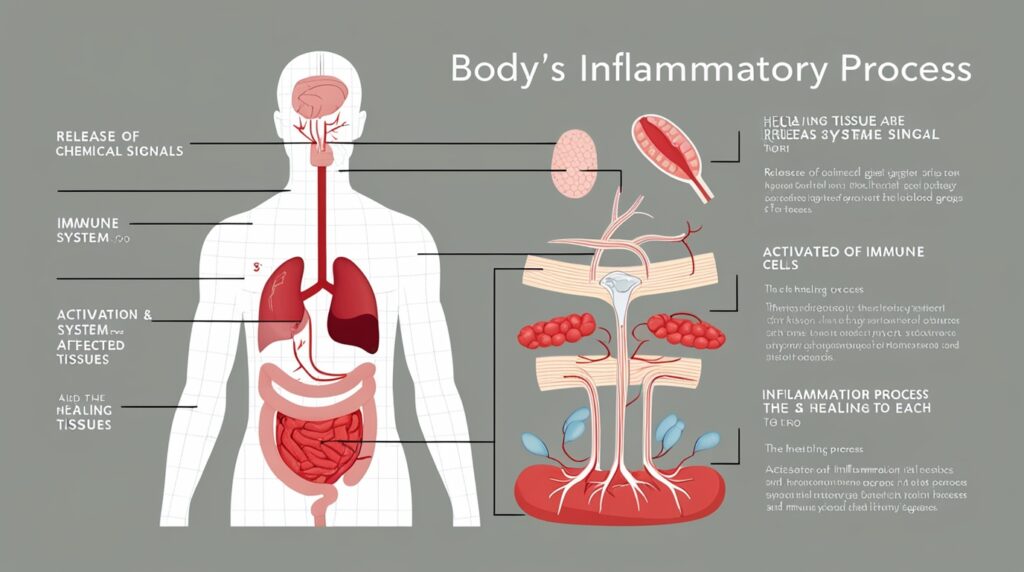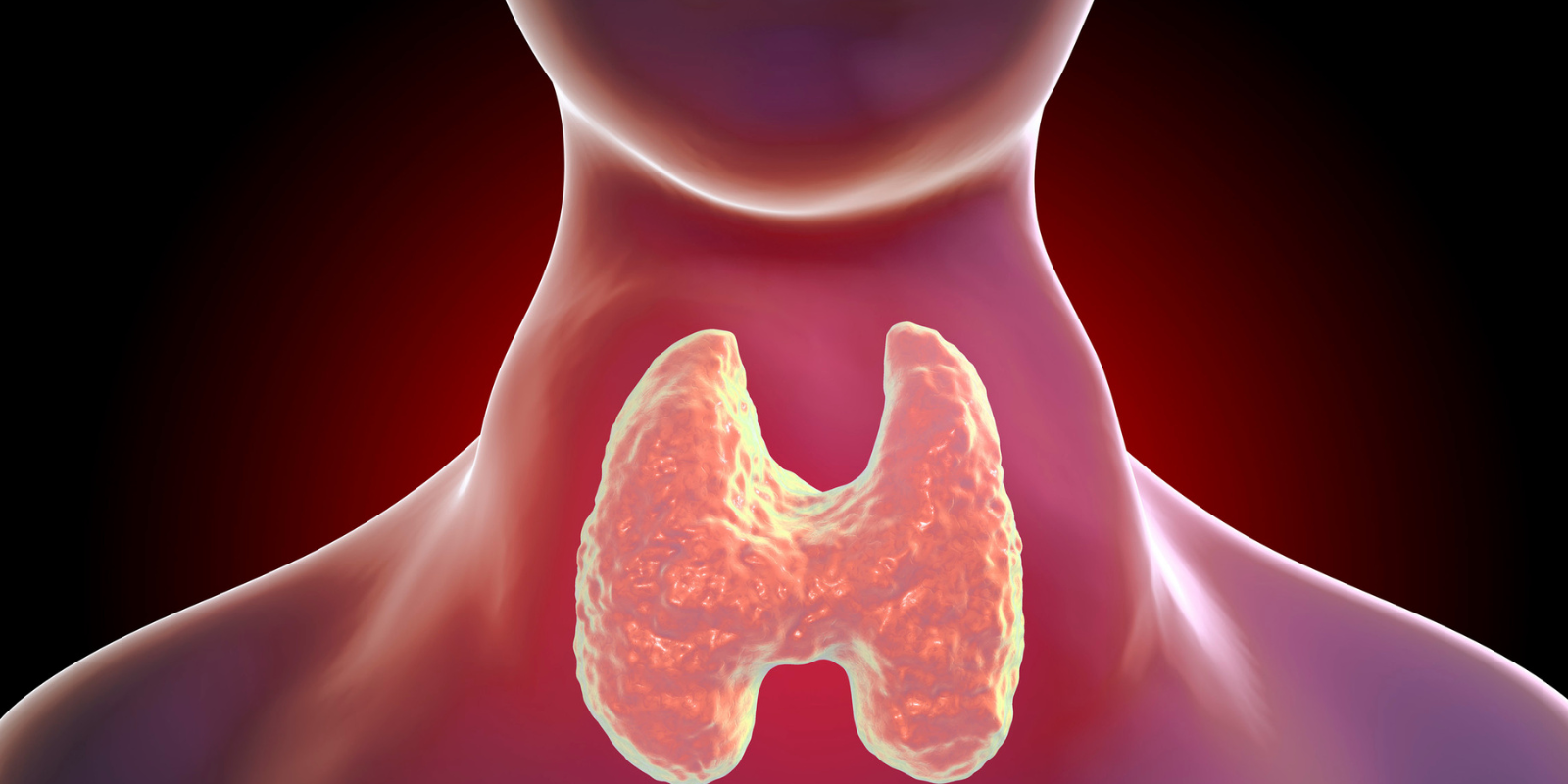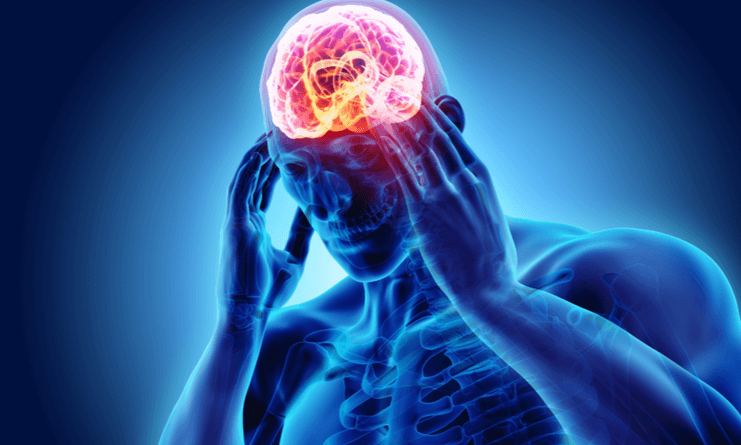When we hear the word ‘inflammation’, the first thing that comes to our mind is flames and fire. Now the question here is that how this inflammation is fire for the body. Well, inflammation is the natural response of the body to infections or injuries and it is needed for defense and healing of the body.
As you know the excess of anything is bad so here also the problem starts when this inflammation goes beyond the limit needed and then really it becomes fire for the body as research has found a strong link between chronic inflammation and severe diseases such as cancer, heart disease, diabetes, Alzheimer’s and arthritis.
So to keep the inflammation levels in your body in healthy range, anti-inflammatory diets are gaining popularity day by day.

In this article, you will get a complete overview of the anti-inflammatory diet — what to eat and what to avoid in it for better health.
Let’s First Describe an Anti-Inflammatory Diet
An anti-inflammatory diet follows a dietary pattern which helps you to reduce inflammation levels in your body and enhances your overall health by enriching the body with the necessary nutrients.
This diet is based on the intake of nutritious whole foods that are not processed at all or minimally processed as they are good for controlling excess inflammation in the body and it avoids the intake of inflammation-triggering foods.
Some particular food components that work in this regard are omega-3 fatty acids, some phytochemicals, and antioxidants. Check out the 10 essential nutrients your body needs for lasting health.
How Anti-Inflammatory Diet Helps You?
Apart from knowing that the anti-inflammatory diet reduces the risk of chronic diseases, you must also know the wide range of other health benefits it gives you. Knowing about the so many positive aspects of the anti-inflammatory diet for promoting better health will help you get the motivation needed for starting it. Let’s dive deeper and know the benefits of an anti-inflammatory diet.
⦁ Promotes overall better health by making you physically and mentally healthy
⦁ Protects against and lessens your chronic pain
⦁ Gives you good digestion and gut health. Discover how your gut and brain health are deeply connected. ⦁ Manages your weight
⦁ Makes your immunity strong and lessens the symptoms of autoimmune diseases
⦁ Improves your skin
⦁ Enhances your emotional well-being
What Are Some Principles of An Anti-Inflammatory Diet?
Some principles you have to follow in an anti-inflammatory diet are:
⦁ Eating lots of fruits and vegetables as they are high in antioxidants and other anti-inflammatory compounds, learn more about the powerful benefits of a plant-based diet here. ⦁ Taking healthy fats which work for curbing inflammation.
⦁ Taking protein in moderate amounts. You can have fish, legumes, and chicken.
⦁ Adding herbs and spices such as turmeric, garlic, and ginger in foods because of their anti-inflammatory properties.
⦁ Avoiding processed foods, trans fats, artificial sugars, and refined carbs which can trigger inflammation in your body.
⦁ Staying hydrated with water and other healthy beverages such as green tea which detoxify the body and lessen inflammation.
⦁ Limiting alcohol and caffeine intake as they are the big culprits for triggering inflammation in your body.
What Are Some Foods to Include In an Anti-Inflammatory Diet?
Here are mentioned some foods you should include as part of an anti-inflammatory diet.
⦁ Berries: All the different varieties of delicious berries including blueberries, strawberries, blackberries, and raspberries are rich in fiber, vitamins and minerals. The high content of the antioxidant ‘anthocyanin’ in them specifically makes them a good food choice for lessening inflammation in your body. According to research, consuming blueberries and strawberries can increase natural killer cells and lower inflammation markers associated with heart disease.
⦁ Fatty fish: Fatty fish such as salmon, sardines, herring, mackerel, and anchovies are good sources of long-chain omega-3 fatty acids, which have anti-inflammatory effects. They can help reduce the risk of metabolic syndrome, heart disease, diabetes, and kidney disease. Research has found that consuming salmon can lead to reductions in the inflammatory marker CRP. Learn more about the powerful anti-inflammatory benefits of omega-3s here.
⦁ Broccoli: Broccoli is a highly nutritious cruciferous vegetable that has been linked to a decreased risk of heart disease and cancer. This may be due to its anti-inflammatory properties, which are attributed to the antioxidant sulforaphane, which can decrease inflammation by reducing levels of cytokines and nuclear factor kappa B.
⦁ Avocados: Avocados have heart-healthy monounsaturated fats and some carotenoids, and tocopherols, which are linked to a reduced risk of cancer. Also, a compound in them is thought to lessen inflammation in newly forming skin cells. Research has shown that consuming avocado for 12 weeks can reduce inflammatory markers interleukin 1 beta (IL-1β) and CRP in people with excess weight.
⦁ Green tea: Green tea is considered a healthy beverage with research showing that it is associated with a reduced risk of heart disease, cancer, Alzheimer’s disease, obesity, and other conditions. This is due to its antioxidant and anti-inflammatory properties, particularly the substance called epigallocatechin-3-gallate (EGCG) which has the ability to inhibit inflammation by reducing the production of pro-inflammatory cytokines and injury to the fatty acids in cells.
⦁ Peppers: The antioxidant quercetin in bell peppers can help with reducing oxidative stress and inflammation linked to chronic diseases. Sinapic acid and ferulic acid in chili peppers are also known to reduce inflammation and help with healthy aging.
⦁ Mushrooms: This low-calorie food has good amounts of selenium, copper, B vitamins, antioxidants, and anti-inflammatory substances such as phenols. Lion’s mane mushroom particularly works against obesity caused by inflammation. Remember to not overcook them as it reduces their anti-inflammatory compounds.
⦁ Grapes: The antioxidants resveratrol and anthocyanins are good for decreasing inflammation and the associated diseases such as diabetes, Alzheimer’s, obesity, eye issues, and heart problems. A review study found that resveratrol is particularly good for treating heart failure and cardiovascular disease.
⦁ Turmeric: It has a strong anti-inflammatory compound curcumin in it which can reduce inflammation related to various diseases such as arthritis and diabetes. To experience a noticeable effect, it may be necessary to take supplements containing isolated curcumin rather than consuming turmeric alone. Curcumin supplements are often combined with piperine to boost absorption.
⦁ Extra Virgin Olive Oil: Extra virgin olive oil is a healthy fat with numerous health benefits, including a reduced risk of heart disease, brain cancer, and other serious health conditions. Research has shown that consuming it may decrease CRP and other inflammatory markers. It contains the antioxidant oleocanthal which has anti-inflammatory effects similar to ibuprofen.
⦁ Dark Chocolate: Dark chocolate is rich in antioxidants and flavanols which can reduce inflammation and improve vascular function. Research has linked regular intake of moderate amounts of dark chocolate with reduced serum concentrations of C-reactive protein, an inflammatory marker. To maximize the anti-inflammatory benefits, choose dark chocolate that contains at least 70% cocoa.
⦁ Tomatoes: Vitamin C, potassium, and lycopene, an antioxidant with potent anti-inflammatory qualities, are all abundant in tomatoes. Lycopene is quite supportive for reducing pro-inflammatory substances associated with certain cancer types. Cooking tomatoes in olive oil can help increase absorption of lycopene because it is a carotenoid that is better absorbed with a source of fat.
⦁ Cherries: The high content of antioxidants ‘anthocyanins and catechins’ in cherries makes them capable of giving anti-inflammatory properties. Tart cherries have been studied more extensively than other varieties, and research has shown that consuming tart cherry juice can lower levels of the inflammatory marker CRP. However, more research is needed to understand how cherries can help reduce inflammation. Discover 10 underrated superfoods that fight inflammation naturally.
Foods to Avoid In an Anti-Inflammatory Diet
An anti-inflammatory diet typically involves avoiding:
⦁ Processed foods including chips, crackers, and cookies.
⦁ Refined carbohydrates like pasta and white bread.
⦁ Fried foods including doughnuts, fried chicken, and french fries.
⦁ Sweetened drinks including processed juice and soda.
⦁ Trans fats like shortening and margarine.
⦁ High omega-6 vegetable oils, such as soybean oil, corn oil, and sunflower oil.
⦁ Red meat and processed meats, such as bacon and deli meats.
⦁ Dairy products, especially those with saturated fats.
⦁ Alcohol, in excessive amounts.
⦁ Gluten, if you are gluten intolerant.
⦁ Artificial sweeteners and additives.
Key Takeaways
An anti-inflammatory diet is a type of dietary pattern that aims to reduce inflammation in the body by providing the body with necessary nutrients and avoiding foods that can trigger inflammation.
It focuses on consuming whole, unprocessed foods that are high in nutrients, such as fruits and vegetables, healthy fats, lean proteins, and herbs and spices.
The benefits of an anti-inflammatory diet include reducing the risk of chronic diseases, improving overall health, weight management, and better digestion and gut health.
Some foods to include in an anti-inflammatory diet include berries, grapes, cherries, mushrooms, avocados, fatty fish, broccoli, green tea, and peppers.
It is also important to limit processed foods, sugar, trans fats, and refined carbohydrates, and to minimize alcohol and caffeine intake.

Adequate sleep and regular exercise play a vital role in reducing inflammation and promoting overall health, complemented by simple mindfulness habits that enhance these effects. Visit Healthabulous to explore more expert-backed guides on nutrition, vitamins, and daily wellness.
References
van Zonneveld SM, van den Oever EJ, Haarman BCM, Grandjean EL, Nuninga JO, van de Rest O, Sommer IEC. An Anti-Inflammatory Diet and Its Potential Benefit for Individuals with Mental Disorders and Neurodegenerative Diseases-A Narrative Review. Nutrients. 2024 Aug 10;16(16):2646. doi: 10.3390/nu16162646. PMID: 39203783; PMCID: PMC11357610.
Afvari S, Beck TC, Kazlouskaya M, Afrahim R, Valdebran M. Diet, sleep, and exercise in inflammatory skin diseases. Our Dermatol Online. 2023;14(4):430-435. doi: 10.7241/ourd.20234.21. PMID: 38161767; PMCID: PMC10755759.
Kostoglou-Athanassiou I, Athanassiou P. Editorial: Anti-inflammatory diet in autoimmune diseases. Front Nutr. 2024 Oct 22;11:1497058. doi: 10.3389/fnut.2024.1497058. PMID: 39502875; PMCID: PMC11536506.
Bagheri S, Zolghadri S, Stanek A. Beneficial Effects of Anti-Inflammatory Diet in Modulating Gut Microbiota and Controlling Obesity. Nutrients. 2022 Sep 26;14(19):3985. doi: 10.3390/nu14193985. PMID: 36235638; PMCID: PMC9572805.
Sala-Climent M, López de Coca T, Guerrero MD, Muñoz FJ, López-Ruíz MA, Moreno L, Alacreu M, Dea-Ayuela MA. The effect of an anti-inflammatory diet on chronic pain: a pilot study. Front Nutr. 2023 Jul 13;10:1205526. doi: 10.3389/fnut.2023.1205526. PMID: 37521415; PMCID: PMC10381948.
Scheiber A, Mank V. Anti-Inflammatory Diets. [Updated 2023 Oct 28]. In: StatPearls [Internet]. Treasure Island (FL): StatPearls Publishing; 2025 Jan-. Available from: https://www.ncbi.nlm.nih.gov/books/NBK597377/
Kiecolt-Glaser JK. Stress, food, and inflammation: psychoneuroimmunology and nutrition at the cutting edge. Psychosom Med. 2010 May;72(4):365-9. doi: 10.1097/PSY.0b013e3181dbf489. Epub 2010 Apr 21. PMID: 20410248; PMCID: PMC2868080.
Chavda VP, Feehan J, Apostolopoulos V. Inflammation: The Cause of All Diseases. Cells. 2024 Nov 18;13(22):1906. doi: 10.3390/cells13221906. PMID: 39594654; PMCID: PMC11592557.
Bennett JM, Reeves G, Billman GE, Sturmberg JP. Inflammation-Nature’s Way to Efficiently Respond to All Types of Challenges: Implications for Understanding and Managing “the Epidemic” of Chronic Diseases. Front Med (Lausanne). 2018 Nov 27;5:316. doi: 10.3389/fmed.2018.00316. PMID: 30538987; PMCID: PMC6277637.
Tharmalingam J, Gangadaran P, Rajendran RL, Ahn BC. Impact of Alcohol on Inflammation, Immunity, Infections, and Extracellular Vesicles in Pathogenesis. Cureus. 2024 Mar 25;16(3):e56923. doi: 10.7759/cureus.56923. PMID: 38665743; PMCID: PMC11043057.
Ohishi T, Goto S, Monira P, Isemura M, Nakamura Y. Anti-inflammatory Action of Green Tea. Antiinflamm Antiallergy Agents Med Chem. 2016;15(2):74-90. doi: 10.2174/1871523015666160915154443. PMID: 27634207.
Tristan Asensi M, Napoletano A, Sofi F, Dinu M. Low-Grade Inflammation and Ultra-Processed Foods Consumption: A Review. Nutrients. 2023 Mar 22;15(6):1546. doi: 10.3390/nu15061546. PMID: 36986276; PMCID: PMC10058108.
Zhou X, Afzal S, Wohlmuth H, Münch G, Leach D, Low M, Li CG. Synergistic Anti-Inflammatory Activity of Ginger and Turmeric Extracts in Inhibiting Lipopolysaccharide and Interferon-γ-Induced Proinflammatory Mediators. Molecules. 2022 Jun 16;27(12):3877. doi: 10.3390/molecules27123877. PMID: 35745000; PMCID: PMC9229778.
Coniglio S, Shumskaya M, Vassiliou E. Unsaturated Fatty Acids and Their Immunomodulatory Properties. Biology (Basel). 2023 Feb 9;12(2):279. doi: 10.3390/biology12020279. PMID: 36829556; PMCID: PMC9953405.
Hosseini B, Berthon BS, Saedisomeolia A, Starkey MR, Collison A, Wark PAB, Wood LG. Effects of fruit and vegetable consumption on inflammatory biomarkers and immune cell populations: a systematic literature review and meta-analysis. Am J Clin Nutr. 2018 Jul 1;108(1):136-155. doi: 10.1093/ajcn/nqy082. PMID: 29931038.
Kalt W, Cassidy A, Howard LR, Krikorian R, Stull AJ, Tremblay F, Zamora-Ros R. Recent Research on the Health Benefits of Blueberries and Their Anthocyanins. Adv Nutr. 2020 Mar 1;11(2):224-236. doi: 10.1093/advances/nmz065. PMID: 31329250; PMCID: PMC7442370.
Pot GK, Geelen A, Majsak-Newman G, Harvey LJ, Nagengast FM, Witteman BJ, van de Meeberg PC, Hart AR, Schaafsma G, Lund EK, Rijkers GT, Kampman E. Increased consumption of fatty and lean fish reduces serum C-reactive protein concentrations but not inflammation markers in feces and in colonic biopsies. J Nutr. 2010 Feb;140(2):371-6. doi: 10.3945/jn.109.113472. Epub 2009 Dec 23. PMID: 20032491.
Ruhee RT, Suzuki K. The Integrative Role of Sulforaphane in Preventing Inflammation, Oxidative Stress and Fatigue: A Review of a Potential Protective Phytochemical. Antioxidants (Basel). 2020 Jun 13;9(6):521. doi: 10.3390/antiox9060521. PMID: 32545803; PMCID: PMC7346151.
Henning SM, Yang J, Woo SL, Lee RP, Huang J, Rasmusen A, Carpenter CL, Thames G, Gilbuena I, Tseng CH, Heber D, Li Z. Hass Avocado Inclusion in a Weight-Loss Diet Supported Weight Loss and Altered Gut Microbiota: A 12-Week Randomized, Parallel-Controlled Trial. Curr Dev Nutr. 2019 Jun 12;3(8):nzz068. doi: 10.1093/cdn/nzz068. PMID: 31367691; PMCID: PMC6658913.
Singh R, Akhtar N, Haqqi TM. Green tea polyphenol epigallocatechin-3-gallate: inflammation and arthritis. [corrected]. Life Sci. 2010 Jun 19;86(25-26):907-18. doi: 10.1016/j.lfs.2010.04.013. Epub 2010 May 10. Erratum in: Life Sci. 2010 Jul 31;87(5-6):196. PMID: 20462508; PMCID: PMC3146294.
Li Y, Yao J, Han C, Yang J, Chaudhry MT, Wang S, Liu H, Yin Y. Quercetin, Inflammation and Immunity. Nutrients. 2016 Mar 15;8(3):167. doi: 10.3390/nu8030167. PMID: 26999194; PMCID: PMC4808895.
Elsayed EA, El Enshasy H, Wadaan MA, Aziz R. Mushrooms: a potential natural source of anti-inflammatory compounds for medical applications. Mediators Inflamm. 2014;2014:805841. doi: 10.1155/2014/805841. Epub 2014 Nov 23. PMID: 25505823; PMCID: PMC4258329.
Dyck GJB, Raj P, Zieroth S, Dyck JRB, Ezekowitz JA. The Effects of Resveratrol in Patients with Cardiovascular Disease and Heart Failure: A Narrative Review. Int J Mol Sci. 2019 Feb 19;20(4):904. doi: 10.3390/ijms20040904. PMID: 30791450; PMCID: PMC6413130.
Peng Y, Ao M, Dong B, Jiang Y, Yu L, Chen Z, Hu C, Xu R. Anti-Inflammatory Effects of Curcumin in the Inflammatory Diseases: Status, Limitations and Countermeasures. Drug Des Devel Ther. 2021 Nov 2;15:4503-4525. doi: 10.2147/DDDT.S327378. PMID: 34754179; PMCID: PMC8572027.
Schwingshackl L, Christoph M, Hoffmann G. Effects of Olive Oil on Markers of Inflammation and Endothelial Function-A Systematic Review and Meta-Analysis. Nutrients. 2015 Sep 11;7(9):7651-75. doi: 10.3390/nu7095356. PMID: 26378571; PMCID: PMC4586551.
Lucas L, Russell A, Keast R. Molecular mechanisms of inflammation. Anti-inflammatory benefits of virgin olive oil and the phenolic compound oleocanthal. Curr Pharm Des. 2011;17(8):754-68. doi: 10.2174/138161211795428911. PMID: 21443487.
di Giuseppe R, Di Castelnuovo A, Centritto F, Zito F, De Curtis A, Costanzo S, Vohnout B, Sieri S, Krogh V, Donati MB, de Gaetano G, Iacoviello L. Regular consumption of dark chocolate is associated with low serum concentrations of C-reactive protein in a healthy Italian population. J Nutr. 2008 Oct;138(10):1939-45. doi: 10.1093/jn/138.10.1939. PMID: 18806104.
Ghavipour M, Saedisomeolia A, Djalali M, Sotoudeh G, Eshraghyan MR, Moghadam AM, Wood LG. Tomato juice consumption reduces systemic inflammation in overweight and obese females. Br J Nutr. 2013 Jun;109(11):2031-5. doi: 10.1017/S0007114512004278. Epub 2012 Oct 15. PMID: 23069270.
Chai SC, Davis K, Zhang Z, Zha L, Kirschner KF. Effects of Tart Cherry Juice on Biomarkers of Inflammation and Oxidative Stress in Older Adults. Nutrients. 2019 Jan 22;11(2):228. doi: 10.3390/nu11020228. PMID: 30678193; PMCID: PMC6413159.









